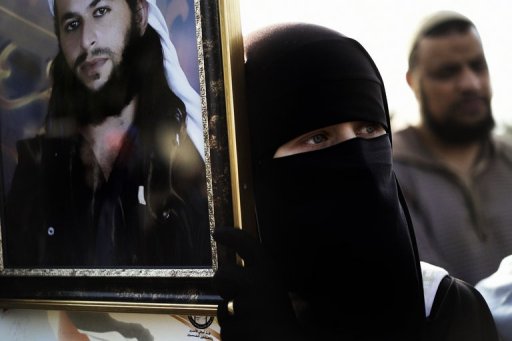Palestinian prisoners in Israel are threatening to relaunch a hunger strike, a Palestinian official said on Sunday, blaming Israel for reneging on a deal that ended a recent one.
Some 1,550 Palestinians imprisoned in Israel ended a hunger strike on May 14 in exchange for a package of measures which would allow visits from relatives in Gaza, and the transfer of detainees out of solitary confinement.
Israel also said it would not extend administrative detention orders, unless new evidence emerged.
In return, prisoner leaders committed to not engage in militant activity inside jail and to refrain from future hunger strikes.
Administrative detention is a procedure that allows suspects to be held without charge for renewable periods of up to six months.
But Qaraqaa said Israel was not keeping its end of the deal.
Qaraqaa also said he doubted Israel would allow the Gaza visits it had committed to.
An Israeli defence official who wished to remain unnamed rejected Qaraqaa’s claims.
Regarding the visits from Gaza, the official said that Israel was indeed working toward enabling visits, but it was a process that “would take some time” as it “involves many different bodies.”
Qaraqaa also addressed the issue of two prisoners, Mahmud Sarsak and Akram Rikhawi, who have been on extended hunger strikes.
He said they “were on the verge of a coma and have a low heart rate.”
Sarsak, who comes from Gaza and is demanding to be recognised as a prisoner of war, began refusing food on March 23, and went 53 days without eating before a short break on May 14 when the deal was signed.
He restarted his strike a day later.
Rikhawi is demanding that the prison authority hand over his medical file prior to him appearing before a prison release committee to expedite his release.
Israel Prison Service spokeswoman Sivan Weizman said that the two were under medical supervision in the infirmary in Ramle prison near Tel Aviv, and if the need arose, would be transferred to a civilian hospital for further care.

COMMENTS
Please let us know if you're having issues with commenting.